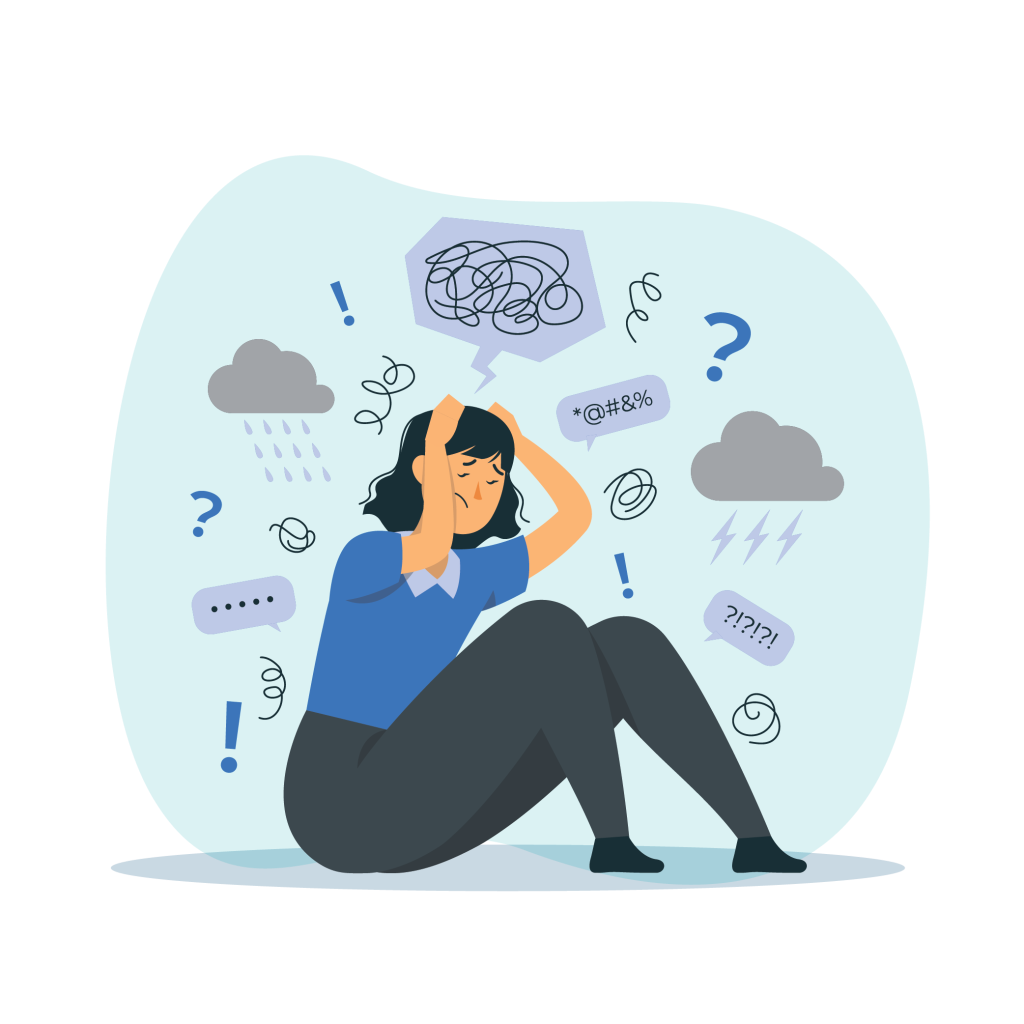TMS for OCD
OCD is a complex and often misunderstood mental health disorder. Thankfully, when people who have OCD receive effective care from a reputable provider, they can make significant improvements. At Atlanta Integrative Psychiatry, our range of beneficial services includes TMS for OCD.
Medically Reviewed: Dr. Zohaib Haque
Author: Atlanta Integrative Psychiatry Team
Last Updated: May 8, 2024

What is OCD?
OCD is short for obsessive-compulsive disorder. As the name implies, people who have this mental health condition may experience two types of symptoms: obsessions and compulsions.
- Obsessions are intrusive and recurring thoughts that are sources of considerable distress.
- Compulsions refer to behaviors that people with OCD feel they must engage in.
Both types of symptoms can undermine a person’s ability to fully engage in a healthy and satisfying lifestyle. They can cause disruptions at work, in school, in the context of interpersonal relationships, and in virtually all other important areas of life.
Some people who have OCD only struggle with obsessions, others are impacted only by compulsions, and still others have both types of symptoms. We will provide detailed examples of the signs and symptoms of OCD a bit later on this page.
How Can TMS Help OCD?
TMS stands for transcranial magnetic stimulation. In the United States, this service was originally approved for people who were living with treatment-resistant depression.
Through the years, clinicians and researchers have discovered that it can help people who have been experiencing the symptoms of other mental health disorders. In 2018, the U.S. Food and Drug Administration (FDA) approved TMS for OCD.
TMS helps by stimulating nerve cells in the brain that may have been negatively impacted by mental health disorders. In the specific case of TMS for OCD, the benefits can include reductions in symptom intensity and improvements in cognitive functioning.
Signs and Symptoms of Obsessive-Compulsive Disorder
A person who has obsessions as a result of OCD may experience symptoms such as the following:
- Disturbing mental images involving obscenity, blasphemy, or other taboo topics
- Anxiety that they will embarrass themselves or others by blurting out something obscene or blasphemous
- Extreme worry that they will accidentally or intentionally harm themselves or others, such as by suddenly swerving their car into oncoming traffic
- Distress when in the presence of items that are not arranged in what they feel is the proper order
- Fear that they will become contaminated by dirt, germs, viruses, or other means
Signs of OCD-related compulsions can include the following:
- Needing to touch certain items in a predetermined order before they can leave a room
- Taking multiple showers each day or washing their hands over and over again, even when they have not been in contact with dirt or any other contaminants
- Meticulously cleaning and re-cleaning a room, house, office, or other space
- Rechecking over and over again that they have turned off the lights, locked the doors, or performed some other household duty
Sadly, some films and television shows portray OCD as little more than “perfectionism” or a quirky desire for order or cleanliness. It is important to understand that this is far from the truth as it relates to this disorder.
The obsessions and compulsions that are symptomatic of obsessive-compulsive disorder can cause people to experience extensive psychological anguish.

Is TMS Effective For OCD?
Yes, research indicates that TMS for OCD can be an effective element of care. For example, in May 2021, the Journal of Psychiatric Research published a study of data that had been collected from 219 patients at 21 separate clinical sites that provided deep transcranial magnetic stimulation, or TMS. The team determined that TMS for OCD can be a beneficial service.
“The majority of OCD patients benefitted from TMS, and the onset of improvement usually occurs within 20 sessions,” the research team concluded. “Extending the treatment course beyond 29 sessions results in continued reduction of OCD symptoms, raising the prospect of value for extended treatment protocols in non-responders.”
Mental Health Benefits of TMS
Experts are not entirely sure why TMS for OCD and other mental health conditions works, but it has a documented history of helping people in the following ways:
- Easing symptoms of depression that did not respond to prior treatment with medication and therapy
- Improvements in people who have generalized anxiety disorder (GAD) and posttraumatic stress disorder (PTSD).
- Elevated mood and greater motivation
- Cognitive clarity
- Help managing chronic pain and certain drug cravings
- Reduced need for medications
How Does a TMS Session Work?
TMS for OCD is a safe, noninvasive procedure. Here’s what happens during a typical session:
- You will sit in a comfortable chair. TMS for OCD does not require anesthesia, so you will be awake and alert throughout the procedure.
- The TMS professional will place a small electromagnetic coil against your scalp, usually near your forehead.
- The TMS professional will give you ear plugs, as the device that generates the electromagnetic pulses can be noisy.
- When the machine is turned on, you may hear a series of clicks and feel some light tapping where the coil touches your head.
- The tapping and clicking will cycle on and off multiple times as the pulses are generated.
- After about 30 minutes, the session will be over. Most patients experience no distressing side effects, so you should be able to immediately return to work, drive a car, and otherwise participate in normal daily activities.
TMS for OCD usually requires several sessions over a period of a few weeks. Your treatment team will develop an optimal schedule for you before you begin to receive this service.

Can TMS Make OCD Worse?
When people participate in their initial TMS sessions, there is a minor risk that they may experience a slight temporary increase in symptoms. This effect is rare, and when it does occur it doesn’t usually last for very long.
When you receive TMS for OCD from a reputable treatment provider such as Atlanta Integrative Psychiatry, you should not have to worry about worsening OCD symptoms. TMS and all other services at our center are provided by trained and experienced professionals, with the goal of helping our patients achieve improved health and better quality of life.
Begin TMS Therapy for OCD in Atlanta, GA
Atlanta Integrative Psychiatry is a premier provider of comprehensive outpatient treatment for adults whose lives have been disrupted by obsessive-compulsive disorder and other mental health concerns. Our customizable array of treatment options includes TMS for OCD. When you receive TMS or any other service at our center in Atlanta, you will be in a safe and welcoming environment, under the care of skilled professionals.
To learn more about TMS for OCD at Atlanta Integrative Psychiatry, or to schedule a free assessment, please visit our appointment page or call us today.
Find Mental Health Treatment Today
Atlanta Integrative Psychiatry is an Industry leader in mental health treatment . Our team of top medical experts specialize in dual diagnosis treat and are committed to ensuring that each patient is treated as an individual.
Call us today, we're avialable 24/7.




